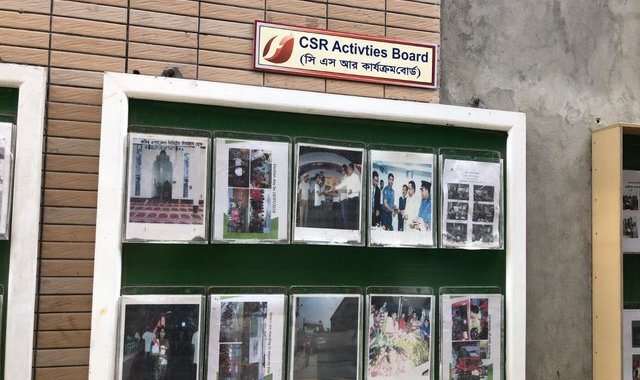Contestations of CSR across time, space, and experience … and a Call for Papers
By Jeremy Moon
◦ 3 min read ◦
It is well known that globalization of business has thrown up a host of new governance challenges and new governance solutions. Conspicuous in this regard are the various ‘responsibility remedies’ for challenges posed in the supply chains of multinational corporations.
The growth and transformation of supply chains, particularly in agricultural products and garments has reflected a pattern of business expansion and penetration of host country markets. These have been followed by revelations of short-comings in the treatment of workers and communities, and in environmental responsibility. And in turn, these have been followed by responsibility remedies, often in the form of partnerships, international standards and multi-stakeholder initiatives.
Formerly, if corporations were asked to whom they were socially responsible they might well have answered ‘to their communities’ or ‘to their stakeholders’. The concept of responsibility to communities makes sense in an industrial model of production in which the company, its management and workers are united not only by association with the company but also by the place in which the company had its most obvious impacts. The concept of responsibility to stakeholders is premised on its offer of an alternative to exclusive responsibility to shareholders, combining an ethical and a functional logic. But with global supply chains, the concepts of community and stakeholder responsibility are stretched. In the former case this is to relationships with no face-to-face interaction or even common identity with place and culture. In the latter case it is to corporate relationships with workers who have no contractual relationship with the respective corporation, and may even be unaware that they are working in that corporation’s supply chain.
So we have witnessed numerous alternative models of supply chain responsibility often in the form of partnerships of businesses and civil society organizations, sometimes also involving local, national and international governments. The legitimacy of these partnerships, standards organizations and Multi-Stakeholder Initiatives (MSIs) is usually premised on some reference to, what are taken to be, universal principles, and on the plurality of participants, particularly those reflecting societal voice – ostensibly the surrogates of community and stakeholders.
But notwithstanding the legitimacy that these responsibility remedies initially attracted, research increasingly sheds doubts on their ability to resolve the responsibility question because they tend to obscure conceptions to whom and for what business is responsible for, and specifically by marginalizing representation from the global South – or the production-based economies of the supply chains.
In my own work, I have seen tensions between host governments and international remedies for oppressive labour standards, with the former regarding such ostensibly well-intentioned initiatives as subversive to their own authority. There are tensions between host country suppliers and international brands and retailers with some of the former going out of business for not readily complying with new standards or complaining that they bear disproportionate costs of factory upgrading. And there are tensions experienced by workers whether with their own governments for regulatory failure, with their immediate employers for low wages and poor conditions, or with international supply chains which structure their livelihoods. But these tensions are often not articulated by virtue of the weak labour organization (often compounded by political environments hostile to organized labour).
As a result from global South perspectives the new variants of the social responsibility model look ill-suited to the ‘on the ground’ economic, social and environmental challenges, at best. At worse, they look like a legitimization of a continuing model of exploitation.
A forthcoming special issue of the journal Human Relations, ‘Contesting Social Responsibilities of Business: Experiences in Context‘ is devoted to addressing such issues. Core questions that the SI is designed to address include:
- How do individuals, groups and communities from various geographic and geo-political contexts experience the imposition of social responsibilities and practices from businesses of all forms?
- How are social responsibilities and their related institutions and practices transformed, subverted and/or resisted within, across and outside of organizations and workplaces?
Moreover, the SI editors will also welcome papers on wider issues arising from the social responsibility of business, specifically to highlight perspectives borne of contextual experiences.
A Special Issue workshop will be held on Thursday 16th September 2021 (applications by Monday 21st June 2021. To be considered for this special issue, full-length papers should be submitted through the journal’s online submission system between February 1st and 28th 2022.
For full details on the call, the workshop and the submission processes please follow this link.
About the Authors
Jeremy Moon is Professor at Copenhagen Business School, Chair of Sustainability Governance Group and Director of CBS Sustainability. Jeremy has written widely about the rise, context, dynamics and impact of CSR. He is particularly interested in corporations’ political roles and in the regulation of CSR and corporate sustainability.
On behalf of the Guest Editors: Premilla D’Cruz, Nolywé Delannon, Lauren McCarthy, Arno Kourula, Jeremy Moon and Laura J. Spence; and the Human Relations Associate Editor: Jean-Pascal Gond.
